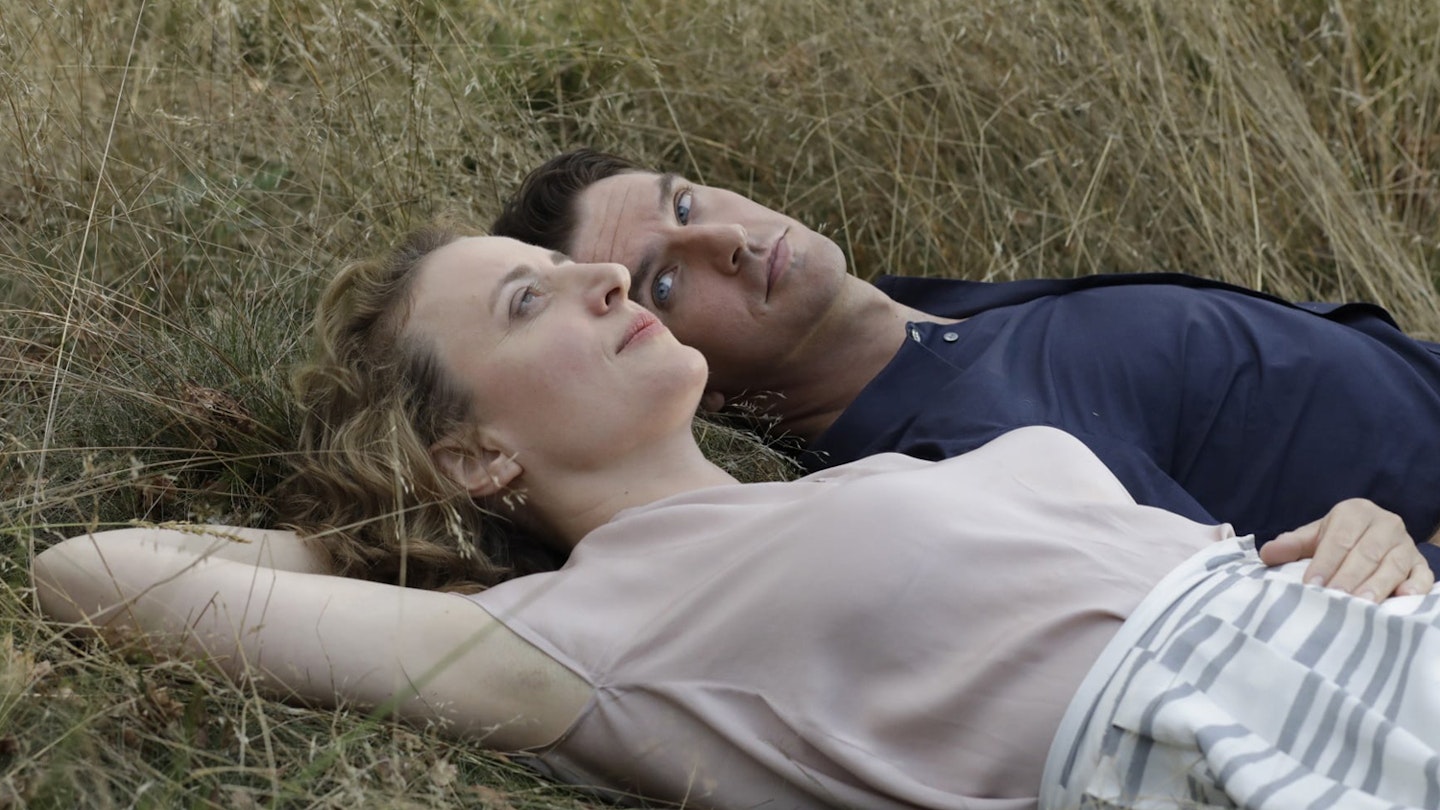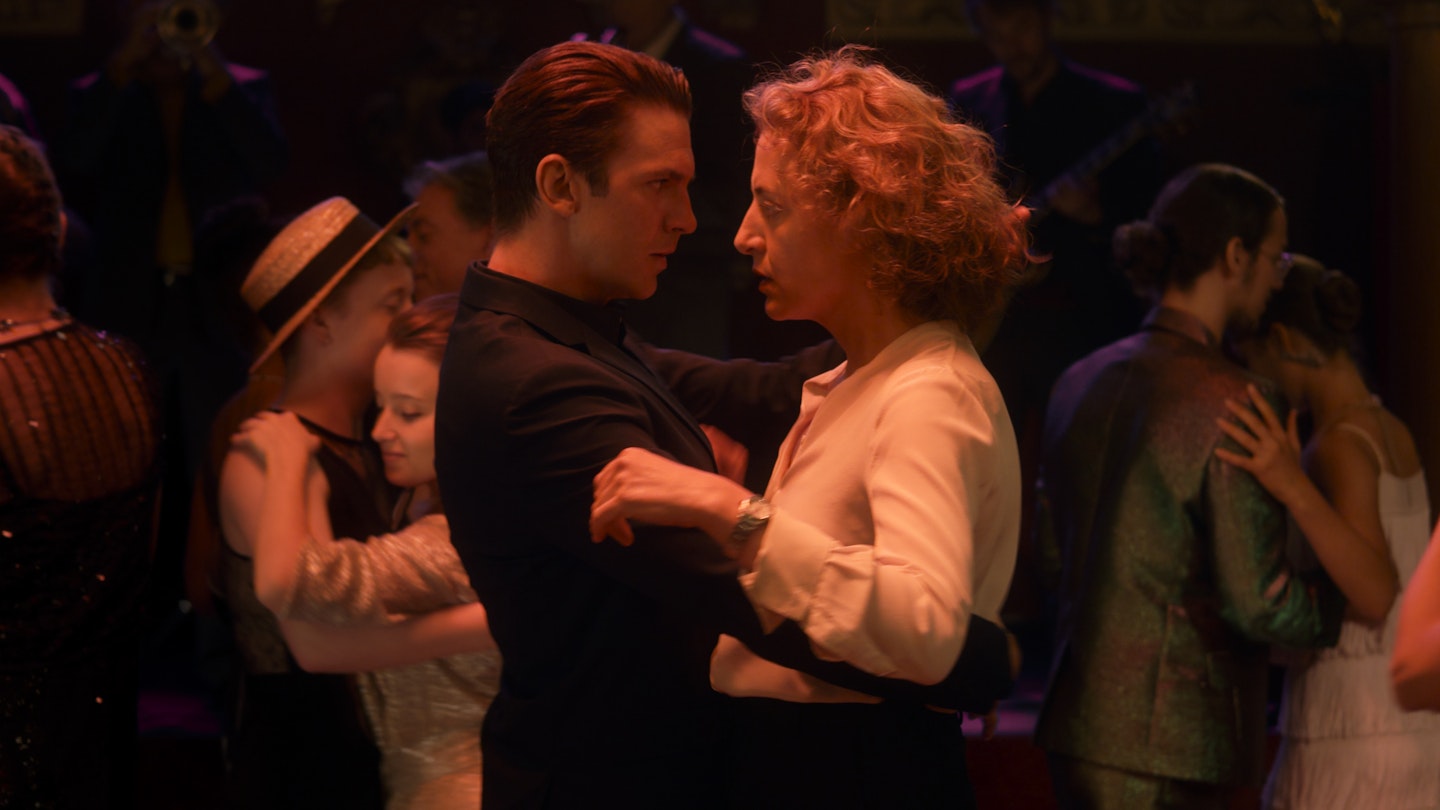All seems well on Alma (Maren Eggert) and Tom’s (Dan Stevens) first date. They meet in a nightclub, and while sipping Bordeaux they discuss poetry and the meaning of life. On the dancefloor, Tom breaks into a rumba worthy of a Strictly champion. But then the trouble starts: his circuits start glitching and he has to be carried away for urgent repairs.
Tom is a humanoid robot, custom-designed to be the ideal life partner for Alma, an anthropologist at the Pergamon Museum in Berlin. She’s single, and sceptical, but she has been persuaded to take Tom on as a trial. After three weeks of living with a bespoke boyfriend, she must write an evaluation for his creators: can humans and machines become lovers? Maria Schrader (director of Netflix’s Unorthodox) has drawn a touching romance from this science-fiction scenario, dotted with disarmingly dreamy moments and a line of philosophical inquiry that recalls Spike Jonze’s Her.
Dan Stevens, with his ice-blue eyes and English-accented German, leans into the uncanny comic possibilities of Tom, all coolly ingratiating charm as he attends to his new owner’s every perceived need, whether preparing a “romantic little brunch” or tidying her flat in seconds. As Alma, Eggert offers a recognisably damaged woman who has retreated into work after a heartbreak, wary of any new intimate connection. (One scene lays bare the mechanics of Tom’s sexual capabilities, and his sensitively programmed understanding of consent.) Sandra Hüller (Toni Erdmann) brings off-kilter humour as the impish robot procuress who hooks them up. Alma’s research uncovers unexpected poetry in ancient texts, but can she also find romance dwelling in Tom’s sophisticated circuits? Benedict Neuenfels’ cinematography uses the glare of sunlight, streetlamps and gleaming white walls to mimic the scrutiny placed on this experimental affair, while Schrader’s screenplay systematically decodes each line of Alma’s sentimental programming.

